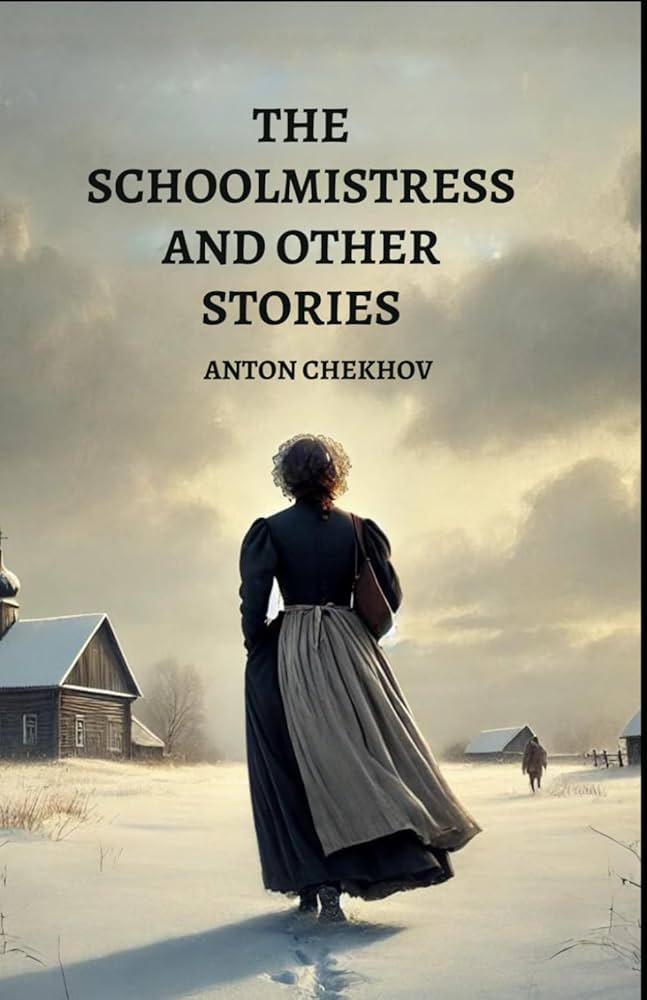ON OFFICIAL DUTY
by“On Official Duty” begins with a quiet yet telling moment: a constable with a kind smile assures the examining magistrate that everything has followed procedure. His smile, modest and tired, speaks of a desire to be seen as dutiful, as someone who has done his part with care. When the sledge departs through a familiar landscape of snow-laden roads and dim forest outlines, a strange heaviness settles over the magistrate and the accompanying doctor. Although the snowstorm has passed, the silence now carries a weight of its own, pressing down like a second skin. As the telegraph poles flash past and the white landscape seems unending, both men slip into introspection. Their thoughts linger not on the case they’ve handled, but on the villagers left behind—people absorbed by their own survival, indifferent to the broader beauty of the land around them.
Within the village, nature is not revered, but resisted. For many, the fields and forests are just obstacles to crops or threats to livestock—problems to manage, not mysteries to embrace. Yet alongside this practical worldview lies another—less vocal, less understood, but deeply ingrained. Nature is sensed as something unknowable and overpowering, a silent force shaping life with neither malice nor mercy. This deeper, primal relationship to the land stirs quiet dread. The vast, snowy terrain does not just signify space; it becomes a metaphor for the emotional and spiritual isolation that underlies rural existence. It suggests that no matter how many fires are lit or how many houses are built, some part of life remains untamed and unreachable.
By the time they return, a delay in the arrival of officials has postponed the inquest, leaving the doctor and the magistrate to wait in the growing dark. The blizzard’s aftermath, though quieter now, feels more invasive, as though the storm has left something unsettled behind. When the official proceedings finally begin, the routine of it all—the measured questions, the expected documents, the bureaucratic detachment—feels suddenly inadequate. The death of Lesnitsky is treated as an item on a list, a name crossed out in ink. But in the minds of these men, who had tasted the human dimensions behind the facts, the disconnect feels unbearable. They come to see their own roles not just as agents of law or health, but as figures drifting between lives, tasked to record what they can never fully understand.
Even the constable, Loshadin, who appears to move on quickly from the scene, symbolizes this quiet resilience required of those who survive in the margins. His life, shaped by repetition and hardship, holds little room for dramatic grief. Yet, the simple way he fulfills his duties—with care, with an eagerness to be useful—suggests a quiet dignity that outlasts the cold rituals of procedure. For the magistrate and doctor, this subtle contrast leaves a lingering ache. They return to their posts, but not untouched. Beneath their silence, a shift has occurred. The forest they passed through now feels like more than just a landscape—it becomes a symbol of what exists just beyond the reach of understanding and order.
This story subtly challenges the reader to confront the limitations of reason and the blind spots of officialdom. In every neatly written report or recorded deposition, much is lost—namely, the unspoken currents of pain, love, fear, and endurance that define human life. The characters are not presented as heroes or villains, but as weary participants in a structure too large to question and too narrow to express the truth it seeks to govern. On Official Duty ultimately invites reflection on the value of presence over procedure, and how moments of genuine human awareness, however brief, can cut through the numbness of daily responsibilities.

